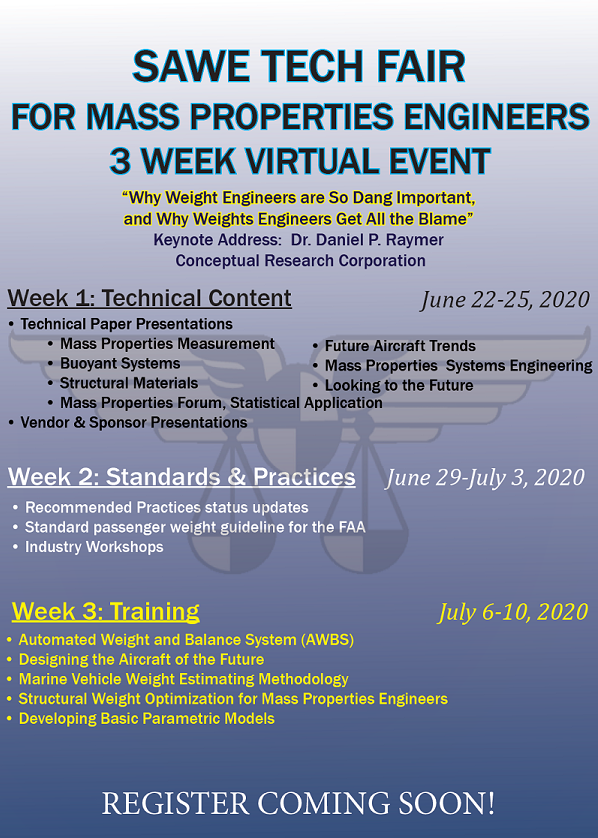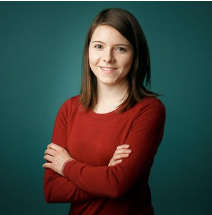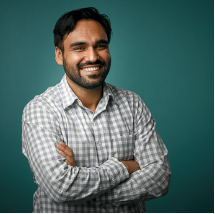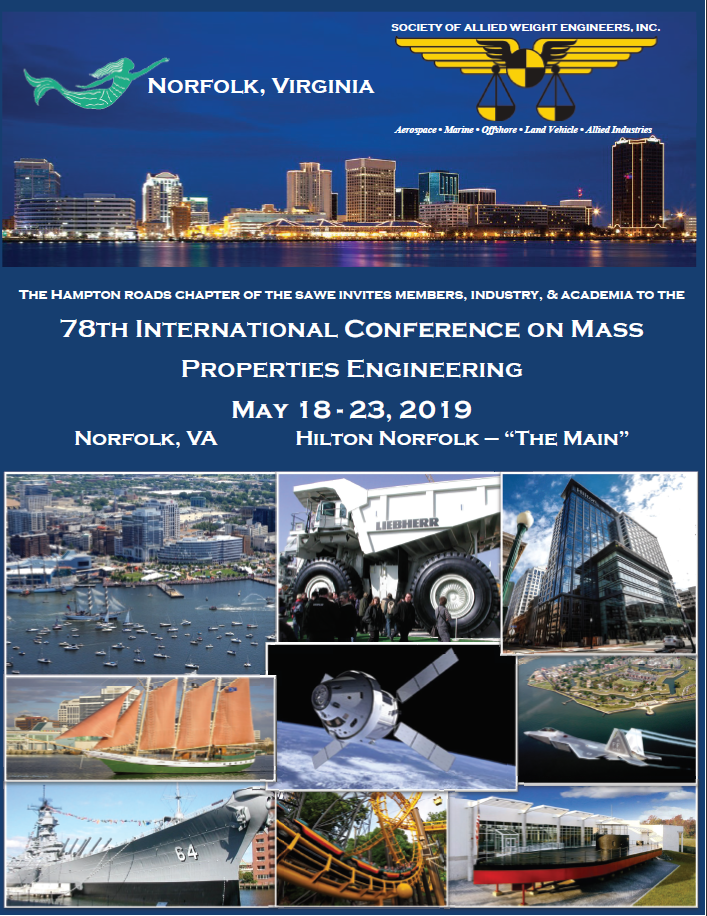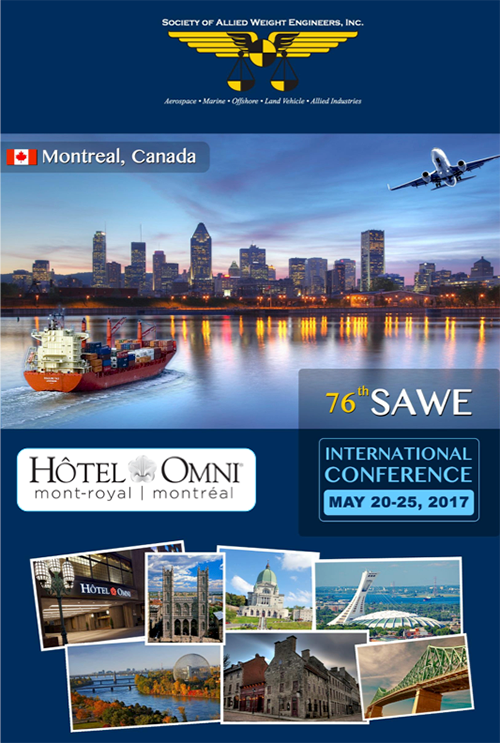News
Weights Engineering posting at DeHavilland Aircraft of Canada
De Havilland Aircraft of Canada Ltd. (‘DHC’) is a proudly Canadian aerospace company currently transitioning its corporate headquarters to Calgary, AB. DHC is undertaking a consolidation of its underlying subsidiary companies under a single brand currently offering engineering, aftermarket, new aircraft manufacturing, modifications, parts manufacturing and flight training. DHC currently has approximately 1,200 employees based in BC, AB and ON as well as in markets and distribution hubs world-wide. Our strong entrepreneurial spirit, together with a culture of empowerment, quality and innovation create opportunities to grow and succeed in an organization with a proud heritage and bright future.
Profile
The Weights Engineer is proficient in CATIA V5, and capable of completing weight forecast and analyses of all aircraft systems and related components.
Location
This position is located on-site in Calgary, AB, Toronto, ON or Victoria, BC.
Duties & Responsibilities
Support Design Engineering in achieving the optimum design within the target weight. Monitor and report the progress of weight reduction programs.
Ensure that all appropriate standards of weight control are maintained.
Provide mass properties data for the movement of aircraft/components.
Provide and ensure the Weight and Balance Manual meets the certifying authorities’ requirements as well as the needs of the operator, and provide replacements as required.
Provide in-service support to Operators in answering weight and balance questions and supplying Weight and Balance Manuals related to out of production, resale and new products in the field.
Weigh aircrafts and provide Weight and Balance Manual for certification prior aircraft delivery.
Provide weight and balance impact for service bulletins’ kits.
Oversee and define the weighing procedure of aircraft/components.
Provide Weight and Balance Load Sheets for experimental, production and delivery flights as required.
Define and maintain the Fleet weight for aircraft production lines.
Education & Professional Qualifications
Bachelor’s or Master’s degree in Aeronautical or Mechanical Engineering from an accredited university
A minimum of 5 years of Mass Properties analysis. Good understanding and experience in the design, stress and flight sciences, of civil aircraft structures, interiors and systems; possess an in depth knowledge of aircraft minimum weight design and manufacturing processes in relation to aircraft performance.
Experience
Experience in aircraft manufacturing of details, assemblies and installations
General knowledge of the aircraft component functions, ie: structure, control surfaces, system, etc.
Skills
Strong communications skills in English (written and spoken), problem solving, flexibility and time management skills.
Good knowledge of CATIA and MS Office skills.
Able to work flexible hours as required.
Able to travel on short-notice occasionally.
Go to this link to apply:
>https://lvav.applytojob.com/apply/P6zo3hMuwI/Weights-Engineer?source=Our%20Career%20Page%20Widget
Chapter Survey on Communication and Events
We received some feedback from our members on how we communicate and engage with them. Take a moment of your time to review the survey results.
Chapter Survey on Communication and Events – May 2019
As a first step, we are hoping to get different regions (GTA, Montreal, and West Coast) to have an informal social networking event in the fall. We want to use this time so that people connected to the Mass Properties profession can spend some time catching up with eachother, spend a little time talking about the feedback from our survey, generate some ideas, and have a good time for everyone.
Expect an invite soon in your inbox. We welcome everyone connected to the field of Mass Properties Engineering to attend, as we really want to hear what you’ve been up to. Not a member? Not a problem! Just come and enjoy the camaraderie!
Reflections on Attending an SAWE International Conference
There are still many Canada Chapter members that have never participated in an international conference for various reasons. Hopefully, the comments made by two of our newer members, Chandan and Lindsay, will give you more reasons to pursue this opportunity in the future!
Introduction
Chandan Deol and Lindsay Johnston both work for Robert Allan Ltd, a naval architecture and marine engineering firm located in Vancouver, BC. They have been involved in developing tools to improve the weights process for about 3 years now. Both were first time attendees at the SAWE International Conference held in Norfolk, Virginia May 18-23, 2019. They have shared their thoughts on the conference and the benefits of attending.
What were the major highlights? What surprised you the most?
Major Highlights: Meeting engineers from other industries and finding commonalties in our problems and solutions. For example, the issue of trusting supplier data is common to the marine and aeronautics industries. One of the common solutions across the industries finds its foundation in statistics and more specifically, regression analysis. As a consequence, the problem of formulating and filtering the independent variables is also common to the different disciplines. This filtering process, which forces weight engineers to put their data investigation hats on, is one of the most interesting and fulfilling parts of the process.
Additional Highlights: Hearing weights related stories, both old and new, from veteran and junior engineers was very entertaining. Seeing the variety of different industries represented and the scale difference between our projects and others even within the same industry.
Most Surprising: The use of 3D models to calculate weights, CG’s, and other properties is common but the methods of separating the systems and their respective components, the types of information to include and exclude in the models, and the definitions of common weights properties has not been agreed upon by the builders, suppliers, operators, or owners.
Any papers/presentations that were beneficial?
Applications of Basic Parametric Methods by Douglas Fisher and Methods of Determining Parametric Equations from Data with a Worked Example by David Hansch were very useful. This was because they not only confirmed that our approach at Robert Allan Ltd. was going in the right direction, but also introduced us to certain facets of the methodology we weren’t aware of. For example, going from a single variable parametric analysis to a multivariable analysis requires the designer to pay attention to additional statistical markers. Unfortunately, we were unable to stay for the final day of the conference and it sounds like we missed several other interesting papers.
Can you provide feedback on the training that you took and those that are still available to you?
The training course we attended was titled Marine Vehicle Weight Estimating Methodology and it was taught by David Hansch. David was very knowledgeable, approachable, and professional. The course provides a good overview of the various methods utilized in calculating weights and CG’s. We were able to compare the methods presented with the methods we are currently using for weight estimating and gave us ideas for improvement. Furthermore, David provided examples of each of the approaches to really bring home the concepts. There were several worked examples incorporated into the course as well. Course notes along with a number of useful technical papers and reports were provided by David at the end of the course.
What are the benefits of having various opportunities to network with others?
There is of course a myriad of advantages to networking with other weight engineers. I find one of the most rewarding is having access to several mentors who are more than willing to share technical and practical advice whenever it’s needed. On a similar note, being in touch with others in the field that are facing the same types of technical issues as you are is also obviously advantageous. By working together, we can make our products and processes safer and keep the public’s safety at the forefront.
Why you would recommend other members to attend future conferences?
The conference is a good balance of work and play. There are numerous social activities that allows you to get to make new contacts. It is interesting to learn about the techniques and methods used by designers in other industries and consider how they could be applied to your work. It is also a great way to get more connected with your own chapter members and put a face to a name. The training and technical tracks provide ideas and techniques that can applied to improve the quality of your work. After the conference, we can take the knowledge we have learned and share it with the rest of our colleagues at work.
Can you outline how you gained support to attend the conference?
Our managers encourage us to look for opportunities for training and presentation opportunities. After seeing several emails for this year’s conference and reading though the training courses offered, we picked out two courses that we felt would be useful for the work we do. We brought up the idea with management and they agreed that the training courses sounded useful for the work we do and asked for a budget for the trip. There was some back and forth with the technical manager of weights engineering and we reduced the trip length and chose only one of the courses. Then the budget was sent to upper management and our request was approved. Robert Allan Ltd. provided us with the funding to attend the conference. I strongly believe they made the correct decision.
The 2019 SAWE International Conference on Mass Properties Engineering was a resounding success. The quality technical papers, presentations, training, and workshops that are consistently available to all SAWE members are a credit to the association and its leadership. Thank you to the Hampton Roads Chapter for hosting another excellent conference!
Please feel free to contact any of your chapter board members to see how you can get involved at future international and regional conferences. Also, attend our future chapter teleconferences to find out more ways to benefit from your membership!
April Tang – Recipient of the Ed Payne Award
The Ed Payne Award is presented to young engineers, under the age of 35 at time of application, who have made significant contributions to the SAWE or the mass properties engineering profession.
One of our own chapter members, April Tang, received this award at the 2017 SAWE International Conference in Montreal. Since April could not attend the conference due to work commitments at Bombardier, she had to wait until our celebration BBQ at Whidy Kiskunas’ home to receive this award from our Chapter President, Robert Hargrave.
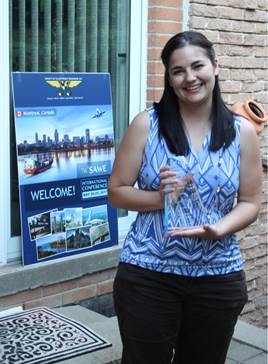
April Tang is an Engineering Professional in Mass Properties Engineering & Product Development Commercial Aircraft at Bombardier, Toronto.
April graduated from Ryerson University in Toronto with a Bachelor of Aerospace Engineering in 2006. She is well known for her determination, effectiveness, and attention to detail.
Her various accomplishments at Bombardier:
– Continuous improvement in methods of predicting, targeting and tracking weight and C.G of various projects
– Active participation in initial design and trade studies such that established target weights can be achieved
– Capable of weighing aircraft, producing reports for Transport Canada, writing applicable manuals and devising loading methods for operator usage
April has spent the last three years mentoring new engineers into the world of Mass Properties while also providing training to customers when required. She has been our invaluable Chapter Treasurer since 2010. As treasurer, she has been diligent in collecting fees, issuing receipts, keeping everyone informed, participating in our monthly chapter executive meetings and helping out whenever possible. April has also been instrumental in helping us organize and keeping track of expenses for our Canadian Regional Conferences. Most recently, April has been very active in keeping track of budget matters for our 2016 Regional Conference in Montreal and in providing a detailed draft budget for the 2017 International Conference Committee. Her efforts have been greatly appreciated by all involved! We can’t thank her enough for all that she has done at Bombardier and the SAWE Canada Chapter. The Ed Payne award is one way that our chapter has managed to recognize April for her dedication to the Mass Properties discipline.
Congratulations April!
76th International Conference on Mass Properties Engineering
Have you registered yet? The SAWE Canada Chapter is in the final stages of preparing a conference that you do not want to miss!
We don’t get this opportunity too often. In fact, this is the first time this conference is being hosted in Canada over the last 76 years! Please check out the link below to our conference invitation…it has all the details you need to start your registration process. There is no better time to be a member of the SAWE Canada Chapter…please join us!


